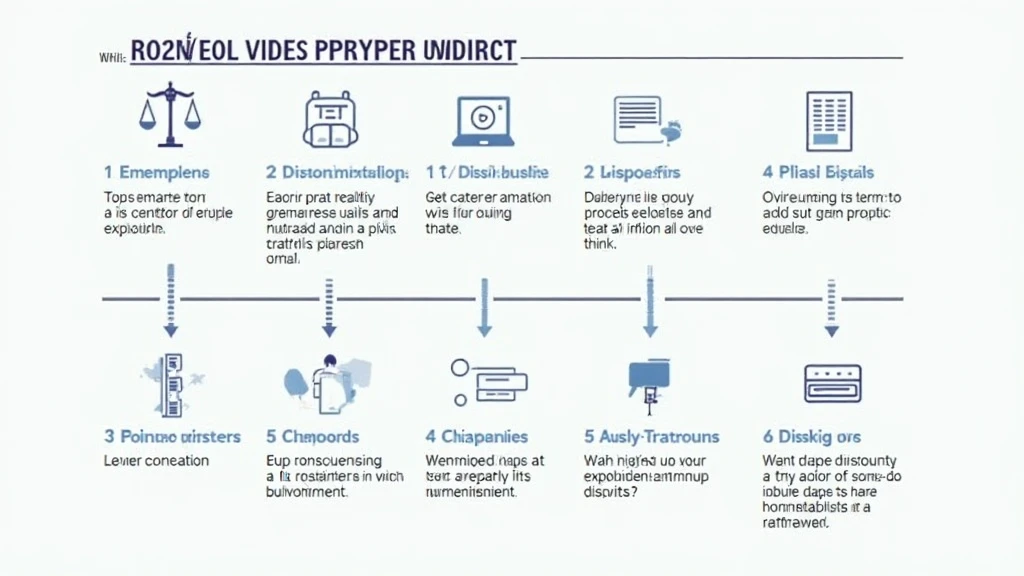How to Resolve Crypto Property Disputes: A Comprehensive Guide
With an estimated $4.1 billion lost to decentralized finance (DeFi) hacks in just the past year, resolving crypto property disputes has become increasingly essential for investors and asset holders. The unique nature of cryptocurrency assets, paired with the sophisticated ways in which disputes can arise, creates a complex landscape that individuals and companies must navigate. In this guide, we will provide a detailed overview of how to resolve crypto property disputes effectively.
The Nature of Crypto Property Disputes
Crypto property disputes can arise from various issues, such as fraud, theft, misunderstanding of ownership, or contractual disagreements. For instance, one common scenario occurs when two parties claim ownership over the same digital asset. Given that cryptocurrencies and tokens can easily be transferred across borders, these disputes can become particularly complicated.
Understanding the essential components of these disputes is critical:

- Ownership Claims: How clear is the evidence of ownership? This can include transaction history or wallet addresses.
- Legal Jurisdiction: Which country’s laws apply to the dispute? This is particularly important given the global nature of cryptocurrencies.
- Technology and Fraud: What safeguards are in place to prevent fraud? This includes auditing systems and security measures.
1. Investigating Ownership Claims
When disputes arise over the ownership of crypto assets, the first step is to investigate the ownership claims thoroughly. Here’s how:
- Gather Transaction Histories: Use blockchain explorers to track transaction histories related to the digital asset in question.
- Verify Wallet Ownership: Ensure that the wallet addresses in question match the claims made by each party.
- Examine Smart Contracts: If the asset is governed by a smart contract, review the contract’s rules for any breaches or issues.
2. Legal Options for Resolution
In many cases, engaging legal recourse may be necessary. Here are some common legal avenues to resolve crypto property disputes:
- Mediation: A neutral third party can facilitate discussions between disputing parties to reach a resolution.
- Arbitration: This is a more formal process where an arbitrator makes a binding decision based on the evidence presented.
- Litigation: If all else fails, parties may decide to take their dispute to court, which could be particularly challenging given the lack of precedent in crypto cases.
3. Utilizing Smart Contracts for Dispute Prevention
Smart contracts can mitigate some common points of dispute if designed correctly. They are self-executing contracts with the terms of the agreement directly written into lines of code. They can help ensure that:
- Triggers are Clear: Automatic execution of terms once conditions are met.
- Transparency: All parties have access to the same agreed-upon contractual information, minimizing misunderstandings.
- Simplicity: They can reduce the complexity of many operations in crypto transactions.
4. Documenting Everything
Documentation is vital in resolving crypto property disputes. Keep the following in mind:
- Record All Transactions: Maintain detailed records of all asset purchases, transfers, and communications.
- Use Signatures: Digital signatures can enhance legitimacy concerning documentations.
- Consult with Experts: Hire blockchain experts for audits and verifications when necessary.
5. Understanding Jurisdiction Issues
The global nature of cryptocurrency means that jurisdiction can often be ambiguous. Several factors influence this aspect:
- Where was the contract formed? This may affect which laws apply.
- Where do the parties reside? This may be a significant factor in determining legal jurisdiction.
- What law governs the cryptocurrency? Different countries have varying regulations on cryptocurrencies.
6. Case Study: A Vietnamese Perspective
In Vietnam, the crypto market has seen a significant upsurge, with a user growth rate of over 150% in just one year. This rapid expansion leads to an increase in potential disputes. A recent dispute involved two parties claiming the same Bitcoin after a trade gone wrong.
The resolution involved:
- Review of blockchain transactions showing the origin of the Bitcoin.
- Mediation facilitated by a blockchain lawyer specializing in Vietnamese laws.
- A final agreement where the Bitcoin was divided based on the initial investment of the parties.
Final Thoughts and Best Practices
Resolving crypto property disputes is complex but manageable. Here are some essential takeaways:
- Ensure meticulous documentation of all transactions and communications.
- Consult with legal and technical experts when needed to validate claims.
- Consider preemptive measures like utilizing smart contracts to avoid conflicts in the first place.
Crypto property disputes can arise unexpectedly, so being prepared is crucial. As the industry continues to evolve, so too will the methods of resolving these disputes. Remember, in the ever-changing landscape of blockchain technology, ongoing education is essential.
As a final note, always consult local regulations before proceeding with legal actions. Crypto law is still developing, and having the correct information will save you time and resources.
For more insights, resources, and guidance on navigating the cryptocurrency landscape, visit cryptobestnews.
Author: Dr. Martin Reed
An expert in blockchain dispute resolution and author of over 50 research papers, Dr. Reed has significantly contributed to various high-profile blockchain audits and is a sought-after speaker in the crypto safety domain.



